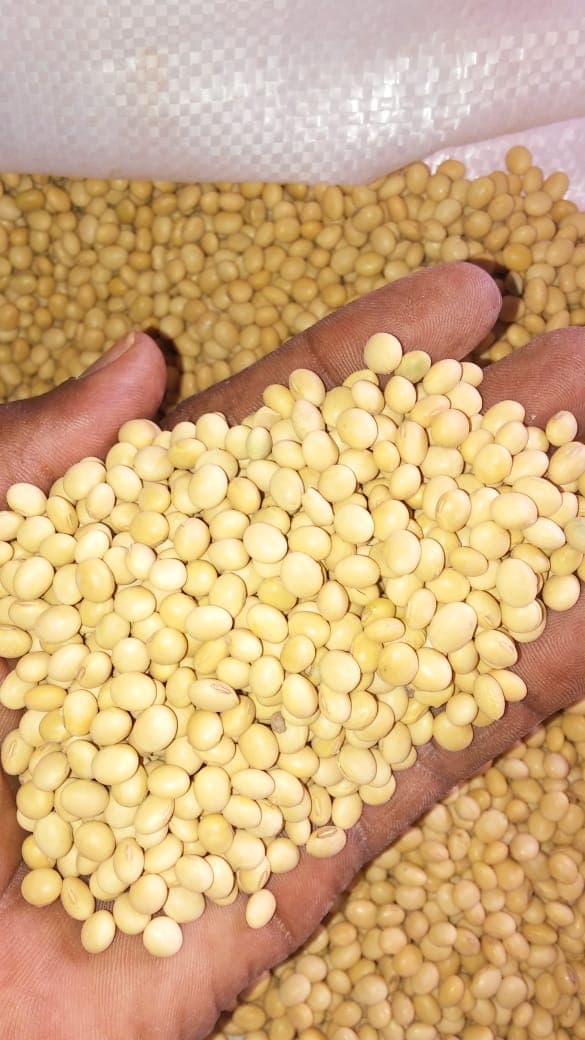



African soybean exporters have a unique opportunity to challenge the dominance of U.S. soybeans in international markets. With a substantial portion of Africa’s soybean production being non‑GMO—and growing global demand for clean-label, sustainable products—African producers can strategically position themselves to win over key importing countries.
U.S. soybean exports have long been central to global agricultural trade, with countries such as China, Mexico, Japan, and South Korea accounting for significant volumes. Although final USDA-verified data for 2024 is pending, current trends suggest that the top 10 importers of U.S. soybeans (by metric tons) will likely remain similar to previous years:
China: ~25–26 million metric tons
Mexico: ~5–6 million metric tons
Japan: ~4–4.5 million metric tons
South Korea: ~3.5–4 million metric tons
Taiwan: ~3–3.5 million metric tons
Indonesia: ~2–2.5 million metric tons
Vietnam: ~1.5–2 million metric tons
Malaysia: ~1–1.2 million metric tons
Philippines: ~1–1.2 million metric tons
Netherlands: ~0.8–1 million metric tons
China continues to dominate, while other key markets in Asia and Latin America, along with Europe’s strategic entry point in the Netherlands, remain significant. For African exporters, these established markets offer both challenges and opportunities. With increasing demand for non‑GMO and sustainable soy products, particularly in Asia, Africa’s production profile can serve as a valuable alternative to GMO-dominated supplies.
African breeding programs, notably those led by the International Institute of Tropical Agriculture (IITA) with its TGX series, have made significant strides in developing high-yield, disease-resistant non‑GMO soybean varieties. Examples include:
TGX 1448‑2E: Valued for its high yield and adaptability in West Africa.
TGX 1876‑4E: Recognized for its drought tolerance in marginal environments.
TGX 1835‑10E: Developed to deliver both yield and resilience under erratic rainfall.
TGX 1904‑6E: Noted for its superior agronomic performance and seed quality.
Local research institutions in Nigeria, South Africa, and Uganda have also introduced region-specific, non‑GMO varieties designed for local soil, climate, and pest pressures. These efforts are crucial for boosting productivity and aligning production with global non‑GMO standards.
Partnerships and Technology Transfer
African governments, working in close collaboration with international partners—such as the FAO, the European Union, and regional development banks—can significantly accelerate progress in soybean seed breeding. By facilitating technology transfer and establishing licensing agreements, these partnerships will empower national institutions to develop and distribute high-quality, cost-effective seeds specifically tailored to local conditions.
International Certifications:
Secure certifications (e.g., Non‑GMO Project verification) to build trust and distinguish African soybeans from GMO alternatives.
Identity Preservation Systems:
Implement traceability and quality assurance programs to verify each shipment’s non‑GMO status and food-grade quality, meeting the demands of discerning international buyers.
Optimized Supply Chains:
Leverage Africa’s lower production costs through modern farming techniques and efficient logistics to offer competitively priced soybeans.
Value-Added Processing:
Explore opportunities to process soybeans into products such as meal and oil, thereby catering to specific market needs and enhancing overall margins.
Market-Centric Customization:
Adapt product specifications—such as moisture content, protein quality, and packaging—to meet the technical requirements of buyers in countries like Japan and South Korea.
Sustainability Messaging:
Highlight eco-friendly and socially responsible production methods, which are increasingly prioritized by importers in Europe and parts of Asia.
Strategic Partnerships:
Collaborate with international traders, local distributors, and processors to establish long-term supply contracts and build trust.
Active Market Engagement:
Participate in trade missions and industry fairs to directly interact with potential buyers, showcase non‑GMO credentials, and gain insights into market demands.
Utilizing Trade Agreements:
Work with governmental bodies to leverage preferential trade agreements and reduced tariff barriers, enhancing the overall competitiveness of African soybeans.
Investment in Infrastructure:
Develop modern transportation, storage, and bulk handling systems to ensure timely delivery and maintain product quality.
Risk Management:
Implement diversified shipping routes, hedging strategies, and digital inventory systems to reduce price volatility and manage supply chain risks.
Scaling Production:
Identify high-potential agroecological zones for cluster-based production, supported by contract farming models that link smallholder farmers with commercial processors.
Farmer Support and Training:
Launch national training programs on Good Agricultural Practices (GAP) and non‑GMO compliance to enhance yield and product quality.
Infrastructure Development:
Invest in strategic grain hubs, digital traceability systems, and state-of-the-art testing laboratories to ensure consistent quality and meet international export standards.
Export Facilitation:
Establish national task forces and streamlined export-readiness programs to secure phytosanitary approvals, trade agreements, and certification processes, while also promoting an “African Non‑GMO Soy” branding campaign.
African soybean exporters are well-positioned to seize a larger share of the global market by leveraging non‑GMO production, competitive pricing, and sustainable practices. By securing robust certifications, forming strategic partnerships, and investing in modern logistics and production infrastructure, they can successfully challenge traditional suppliers in major markets such as China, Mexico, Japan, and South Korea. Embracing these strategies will enable African producers to align with global trends and establish a strong, competitive presence in the international soybean market.
I hope you enjoyed reading this post and learned something new and useful from it. If you did, please share it with your friends and colleagues who might be interested in Agriculture and Agribusiness.
Mr. Kosona Chriv
Founder of LinkedIn Group « Agriculture, Livestock, Aquaculture, Agrifood, AgriTech and FoodTech » https://www.linkedin.com/groups/6789045/
Co-Founder, Chief Operating Officer and Chief Sales and Marketing Officer
Deko Integrated & Agro Processing Ltd
IDUBOR HOUSE, No. 52 Mission Road (by Navis St.)
Benin City, Edo State, Nigeria | RC 1360057
Chief Sales & Marketing Officer
AvecAfrica
Camino los vivitos 21,
38627 Arona
Spain
Follow-me on
✔ WhatsApp: +2349040848867 (Nigeria) +85510333220 (Cambodia)
✔ BlueSky https://bsky.app/profile/kosona.bsky.social
✔ Instagram https://www.instagram.com/kosonachriv
✔ Threads https://www.threads.com/@kosonachriv
✔ LinkedIn https://www.linkedin.com/in/kosona
✔ Facebook https://www.facebook.com/kosona.chriv
✔ Tiktok https://www.tiktok.com/@kosonachriv
WhatsApp Channel: https://whatsapp.com/channel/0029Va9I6d0Dp2Q2rJZ8Kk0x




